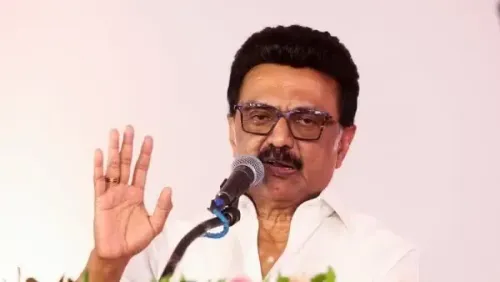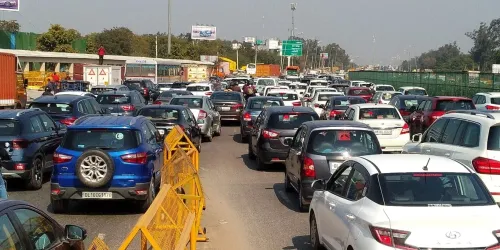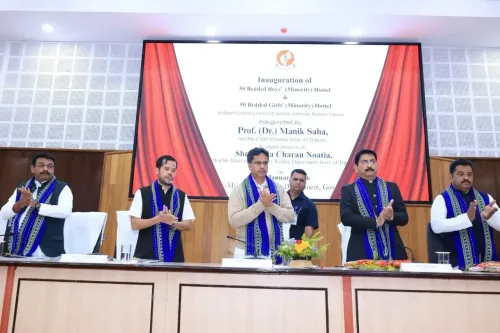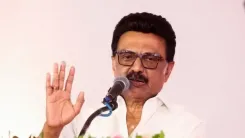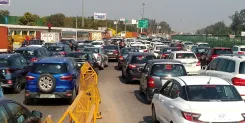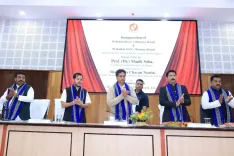Congress Holds BJP Accountable for Violence in Bengal
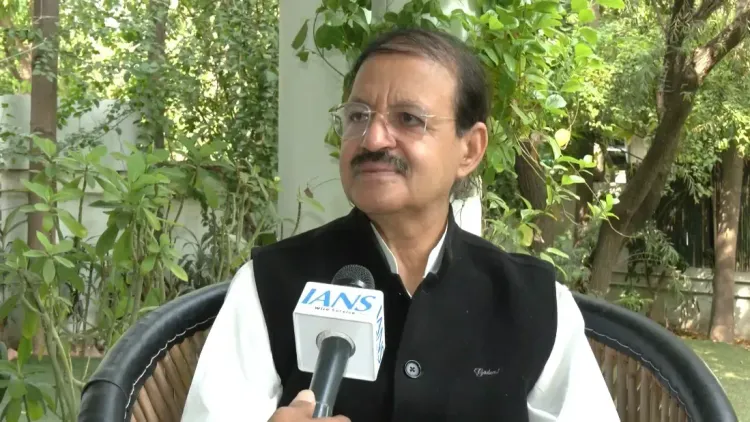
Synopsis
Key Takeaways
- BJP blamed for unrest in West Bengal.
- Violence linked to Waqf Act protests.
- Call for dialogue and understanding.
- Accusations of communal tactics by BJP.
- Mamata Banerjee rejects enforcement of Waqf Act.
New Delhi, April 12 (NationPress) Senior Congress figure Rashid Alvi on Saturday attributed the recent violence in West Bengal to the BJP, asserting that the turmoil in Murshidabad regarding the Waqf (Amendment) Act stemmed directly from the Centre’s supposed meddling in religious affairs.
His comments follow reports of violent demonstrations, arson, and clashes in Murshidabad, where tensions escalated over the Waqf Act, perceived by many in the Muslim community as a violation of their religious freedoms.
The BJP has accused West Bengal Chief Minister Mamata Banerjee of "supporting, instigating, and encouraging" the unrest during protests against the Waqf Act.
“Violence should not occur anywhere. But who bears responsibility for a peaceful protest escalating into violence? Will the BJP government and the Prime Minister continue to ignore these concerns? Will they persist in their animosity towards Muslims by intervening in religious matters? This law is nothing short of an intrusion into Muslim faith,” Rashid Alvi stated to IANS.
He emphasized that when any community feels its religion is under threat, it reacts strongly.
“We have witnessed the repercussions of such incidents - be it the assault on the Golden Temple, the controversy in Denmark over a cartoon, or the backlash against Salman Rushdie. I call for peace, yet I hold the BJP government accountable for this turmoil,” he remarked.
Alvi also responded to the BJP’s claims that the West Bengal Police were passive during the violence.
“It’s hard to believe that a state's police would remain inactive during a critical event. Yes, under BJP administrations, police often display bias. However, in West Bengal, this reflects on the honor of the Chief Minister. The BJP has consistently targeted West Bengal and its leadership. While violence cannot be condoned, it is equally wrong to suppress democratic protests. Citizens should protest, pressure the government, and seek justice, but never resort to violence,” he expressed.
In response to the BJP’s threat of invoking Article 356 if the situation worsens in Bengal, Alvi challenged the communal framing of the debate.
“Why introduce a Hindu-Muslim narrative? These protests are not targeting Hindus but protesting against the Union government, the BJP, and its leaders. This is a reaction against a law imposed without consensus. Hindus and Muslims have historically coexisted peacefully. In this struggle, many Hindus support their Muslim counterparts. The BJP employs old tactics to sow discord and lead the country towards ruin by inciting communal strife,” he stated.
When questioned whether the protests against the Waqf Act could escalate similarly to the events surrounding the Golden Temple, Alvi replied that he does not anticipate such extreme developments but underscored the government’s duty to engage with the protesters.
“I doubt the protests will reach such dramatic levels, but in any democracy, the government must listen to its citizens. Engage with the protesters, comprehend their grievances, and act accordingly. We witnessed the farmers’ protest — they occupied the roads for two years until the government was compelled to repeal the farm laws. If Muslims nationwide are protesting and the Prime Minister advocates ‘Sabka Saath, Sabka Vishwas,’ he must put those words into action and withdraw this Act,” he concluded.
In the meantime, Mamata Banerjee, the Chief Minister of West Bengal, clarified her government’s position, indicating that the Waqf (Amendment) Act would not be enacted in the state.
“We have clearly stated our stance — we do not endorse this law. It will not be enforced in West Bengal. So what is the basis for the riots?” she stated in a post on the social media platform X.


